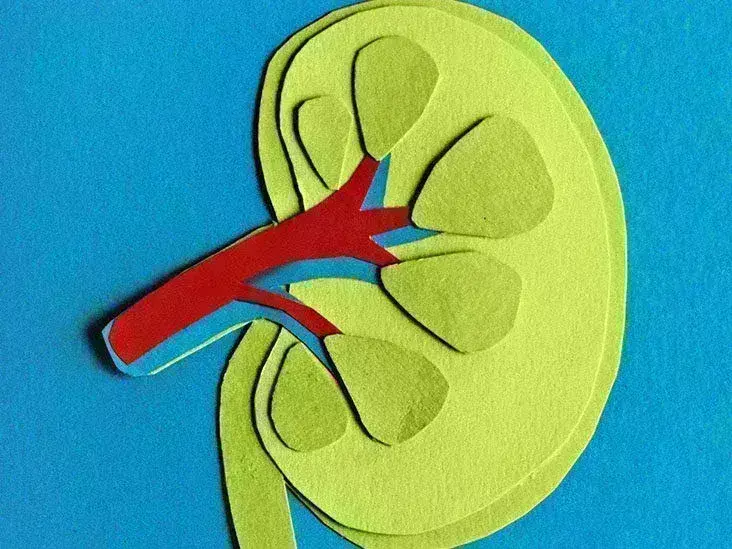- Home
- Medical news & Guidelines
- Anesthesiology
- Cardiology and CTVS
- Critical Care
- Dentistry
- Dermatology
- Diabetes and Endocrinology
- ENT
- Gastroenterology
- Medicine
- Nephrology
- Neurology
- Obstretics-Gynaecology
- Oncology
- Ophthalmology
- Orthopaedics
- Pediatrics-Neonatology
- Psychiatry
- Pulmonology
- Radiology
- Surgery
- Urology
- Laboratory Medicine
- Diet
- Nursing
- Paramedical
- Physiotherapy
- Health news
- Fact Check
- Bone Health Fact Check
- Brain Health Fact Check
- Cancer Related Fact Check
- Child Care Fact Check
- Dental and oral health fact check
- Diabetes and metabolic health fact check
- Diet and Nutrition Fact Check
- Eye and ENT Care Fact Check
- Fitness fact check
- Gut health fact check
- Heart health fact check
- Kidney health fact check
- Medical education fact check
- Men's health fact check
- Respiratory fact check
- Skin and hair care fact check
- Vaccine and Immunization fact check
- Women's health fact check
- AYUSH
- State News
- Andaman and Nicobar Islands
- Andhra Pradesh
- Arunachal Pradesh
- Assam
- Bihar
- Chandigarh
- Chattisgarh
- Dadra and Nagar Haveli
- Daman and Diu
- Delhi
- Goa
- Gujarat
- Haryana
- Himachal Pradesh
- Jammu & Kashmir
- Jharkhand
- Karnataka
- Kerala
- Ladakh
- Lakshadweep
- Madhya Pradesh
- Maharashtra
- Manipur
- Meghalaya
- Mizoram
- Nagaland
- Odisha
- Puducherry
- Punjab
- Rajasthan
- Sikkim
- Tamil Nadu
- Telangana
- Tripura
- Uttar Pradesh
- Uttrakhand
- West Bengal
- Medical Education
- Industry
Nefecon therapy arrests estimated glomerular filtration rate decline and proteinuria in IgA Nephropathy

A new study published in The Lancet suggested that 9-month Nefecon treatment resulted in a clinically significant decrease in eGFR decline and a long-lasting decrease in proteinuria compared to placebo, supporting a disease-modifying impact in individuals with IgA nephropathy.
IgA nephropathy is a chronic, immune-mediated kidney condition that is a major global contributor to kidney failure. Its pathophysiology has been linked to the gut mucosal immune system, and Nefecon, an oral formulation of budesonide with tailored release that is developed to work at the gut mucosal level.
Adult patients (aged 18 years) with primary IgA nephropathy, eGFR 35-90 mL/min per 173 m2, and persistent proteinuria (urine protein-creatinine ratio 08 g/g or proteinuria 1 g/24 h) despite improved renin-angiotensin system blockade were included at 132 hospital-based clinical sites in 20 countries worldwide. For 9 months, patients were randomly allocated (1:1) to receive 16 mg/day oral capsules of Nefecon or a matched placebo, followed by a 15-month longitudinal follow-up period off study medication. Randomization was stratified by baseline proteinuria (2 or 2 g/24 h), baseline eGFR, and geography (Asia-Pacific, North America, Europe, or South America) using an interactive response technology system.
Throughout the 2-year experiment, patients, investigators, and site personnel were kept in the dark about the therapy. Throughout the experiment, optimal supportive care was also provided. The primary effectiveness outcome was a 2-year time-weighted average of eGFR. The entire analytic set was subjected to efficacy and safety evaluations.
The key findings of this study were:
Between September 5, 2018, and January 20, 2021, participants were enrolled for the NefIgArd experiment, with 364 patients (182 per therapy group) randomly allocated in the whole analysis set.
240 (66%) of the patients were men, 124 (34% were women), and 275 (76%) were White.
Over a 2-year period, the time-weighted average of eGFR indicated a statistically significant treatment advantage with Nefecon over placebo, with a time-weighted average change of -247 mL/min per 173 m2 recorded with Nefecon and -752 mL/min per 173 m2 reported with placebo.
Peripheral edema, muscular spasms, hypertension, acne, and headache were the most often reported treatment-emergent side effects during Nefecon therapy.
Reference:
Lafayette, R., Kristensen, J., Stone, A., Floege, J., Tesař, V., Trimarchi, H., Zhang, H., Reich, H. N., Rovin, B. H., & Barratt, J. (2023). Efficacy and safety of a targeted-release formulation of budesonide in patients with primary IgA nephropathy (NefIgArd): 2-year results from a randomised phase 3 trial. In The Lancet. Elsevier BV. https://doi.org/10.1016/s0140-6736(23)01554-4
Neuroscience Masters graduate
Jacinthlyn Sylvia, a Neuroscience Master's graduate from Chennai has worked extensively in deciphering the neurobiology of cognition and motor control in aging. She also has spread-out exposure to Neurosurgery from her Bachelor’s. She is currently involved in active Neuro-Oncology research. She is an upcoming neuroscientist with a fiery passion for writing. Her news cover at Medical Dialogues feature recent discoveries and updates from the healthcare and biomedical research fields. She can be reached at editorial@medicaldialogues.in
Dr Kamal Kant Kohli-MBBS, DTCD- a chest specialist with more than 30 years of practice and a flair for writing clinical articles, Dr Kamal Kant Kohli joined Medical Dialogues as a Chief Editor of Medical News. Besides writing articles, as an editor, he proofreads and verifies all the medical content published on Medical Dialogues including those coming from journals, studies,medical conferences,guidelines etc. Email: drkohli@medicaldialogues.in. Contact no. 011-43720751


